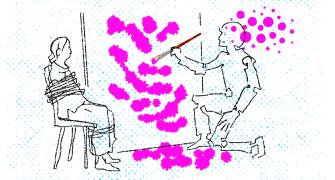A 26-year-old Indian-origin former employee of the artificial intelligence giant OpenAI has died by suicide in San Francisco, authorities said.

Suchir Balaji was found dead inside his Buchanan Street apartment in San Francisco on November 26 on Thanksgiving Day. The medical examiner's office determined the manner of death to be suicide and police officials said there is currently, no evidence of foul play.
The Office of the Chief Medical Examiner (OCME) has identified the decedent as Suchir Balaji, 26, of San Francisco, the office's Executive Director David Serrano Sewell said.
"The manner of death has been determined to be suicide. The OCME has notified the next-of-kin and has no further comment or reports for publication at this time."
The San Francisco Police Department (SFPD) said in a statement that officers responded to a residence on the 100 block of Buchanan St. at about 1:15 pm for a well-being check.
Officers and medics arrived on scene and located a deceased adult male from what appeared to be a suicide. No evidence of foul play was found during the initial investigation, SFPD officer Robert Rueca wrote in a statement.
Balaji spoke to the Times in October, saying he was one of the researchers who worked gathering data to train OpenAI's programmes like GPT4, which users interact with through the chatbot ChatGPT.
OpenAI was devastated that Balaji had passed away, the San Francisco Chronicle reported.
"We are devastated to learn of this incredibly sad news today and our hearts go out to Suchir's loved ones during this difficult time," OpenAI said in a statement.
Balaji was known for whistleblowing the blockbuster artificial intelligence company which is facing a swell of lawsuits over its business model.
Balaji's death comes three months after he publicly accused OpenAI of violating US copyright law while developing ChatGPT, a generative artificial intelligence programme that has become a moneymaking sensation used by hundreds of millions of people across the world, the report said.
Its public release in late 2022 spurred a torrent of lawsuits against OpenAI from authors, computer programmers and journalists, who say the company illegally stole their copyrighted material to train its programme and elevate its value past USD 150 billion.
In an interview with the New York Times published on October 23, Balaji argued that OpenAI was harming businesses and entrepreneurs whose data were used to train ChatGPT.
Balaji left OpenAI because he no longer wanted to contribute to technologies that he believed would bring society more harm than benefit, the report added.
"If you believe what I believe, you have to just leave the company," he told the outlet, adding that "this is not a sustainable model for the internet ecosystem as a whole."
Balaji grew up in Cupertino before attending UC Berkeley to study computer science.
Meanwhile, Balaji's mother has requested privacy while grieving the death of her son, the Mercury News reported.









